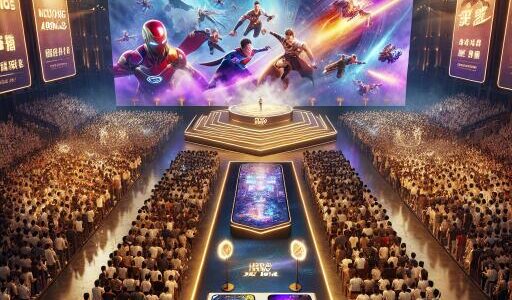Revolutionizing Gaming: AMD FSR 3.1 Unlocks New Levels of Performance Across All GPUs
Gaming enthusiasts and PC aficionados are always in pursuit of that extra edge, be it in terms of graphics fidelity, frame rates, or overall performance. AMD has once again shifted the narrative towards more inclusive technological advancements with its latest offering, FSR 3.1. This groundbreaking tech not only escalates performance but brings its benefits to a broad spectrum of GPUs, irrespective of the manufacturer.
After its announcement earlier in the year, FSR 3.1 has begun to make its way into several high-profile games, with the distinguished action-adventure title Ghost of Tsushima among the first to leverage this tech. Developed by Nixxes Software, known for their PlayStation prowess, a total of six titles now enjoy the significant uplift in gaming performance that FSR 3.1 promises.
What sets FSR 3.1 apart is its ability to separate frame generation from upscaling – a feature that previously tied one’s hands to specific upscaling methods. Now, gamers with graphics cards as varied as the older RTX 2070 can enjoy enhancements using AMD’s frame generation alongside, say, DLSS 2 upscaling, creating a hybrid that brings out the best in older hardware.
FSR 3.1 is universally accessible, breaking away from the exclusivity often seen with competing technologies such as Nvidia’s DLSS. This opens up a world of possibilities for users across different platforms to benefit from enhanced temporal stability, which aims to alleviate common issues like flickering and shimmering. Furthermore, it promises improved detail preservation and ghosting reduction, allowing for lower resolution gameplay to be upscaled, maintaining visual fidelity on higher-resolution displays.
The technology’s frame generation aspect ingeniously intersperses artificially generated frames between the actual game frames, creating a smoother gameplay experience that can significantly enhance how a game feels, even on hardware that isn’t cutting-edge. This was a luxury previously reserved for those with the latest RTX 4000-series GPUs through DLSS 3.0, but AMD has democratized access to similar benefits for a much wider array of gamers.
AMD’s approach to decoupling frame generation from upscaling further grants players the freedom to mix and match upscaling methods, providing flexibility that wasn’t available before. This development is not just a win for AMD GPU owners but extends across the board to NVIDIA and Intel graphics card users too.
The adoption of FSR 3.1 is rapidly growing, with a lineup of exciting titles on board. Beyond Ghost of Tsushima, gamers can look forward to enhanced experiences in other major releases, both current and forthcoming, across a variety of genres. AMD has spotlighted over 60 games that now support the earlier iteration of the technology, FSR 3.0, including notable names like Dragon’s Dogma 2, Senua’s Saga: Hellblade II, and Farming Simulator 25, hinting at a diverse gaming ecosystem that’s swiftly embracing AMD’s frame generation technology.
With AMD FSR 3.1, the future of gaming looks bright, inclusive, and exceptionally fluid. This is a significant stride towards making high-end gaming performance more accessible to a wider audience, ensuring that more gamers can experience their favorite titles in the best possible light, regardless of the hardware they own. As AMD continues to innovate and push the boundaries of what’s possible with gaming technology, the community eagerly anticipates what’s next on the horizon.








